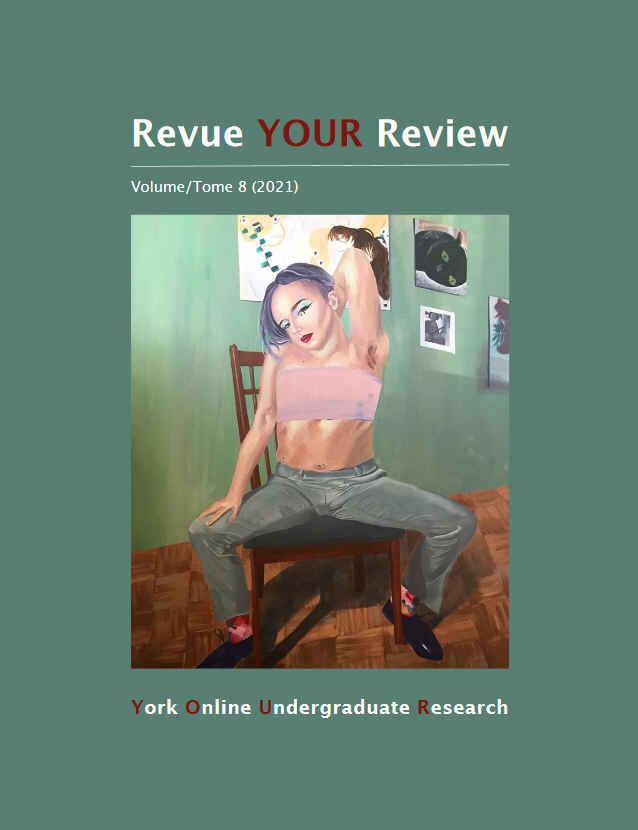Under the surface of York’s refereed undergraduate research journal, Revue YOUR Review (RYR), there’s a unique approach to scholarly publishing. While it looks like a typical open access journal and is hosted by York University Libraries as part of the York Digital Journals program, Revue YOUR Review’s new volume is actually the output of a nurturing process for junior scholars.

“It gives you a sense of what it takes to be a researcher,” says student author Ranjana Nagi, whose article on female genital mutilation in Africa will appear in volume 6/7. “[Research is] a whole career for many people and this makes it possible to experience that career without committing to a whole PhD or other graduate studies.”
Nagi is referring to RYR’s experiential learning focus. When the review committee recommends a student’s work for possible publication, the editorial board pairs each author with a writing coach. The coach helps the student revise the material, evolving a course assignment into an academic article suitable for an interdisciplinary audience. “They actually see what goes into scholarly publication,” says Teresa Abbruzzese, assistant professor in the Department of Social Science and a member of RYR’s editorial board. “It’s coaching. It’s a mentoring process. There’s nurturing, and confidence building, and then we get to the point where the student can actually publish their work.”
Submissions to Revue YOUR Review come from York’s annual Undergraduate Research Fair (also hosted by York University Libraries), with many of the journal’s published articles arriving thanks to the urging of instructors. Often the submissions are papers from previous classes, so the work of revising them for publication is a chance to revisit and update material. “It’s challenging to go back to your work and turn it into something for an interdisciplinary audience … being able to tell a story,” says Nagi.
Abbruzzese laughs when thinking about her own revisits of previous writing. When advising Nagi, she notes, “It’s tough to look back at your own work, right? You have to come back to this essay, but without losing yourself in the process. This is a commendable piece of work, and we just need to bring it to the level of a scholarly manuscript.”
The process of revising an article provides an opportunity for established scholars to share their own experiences with academic writing. “I shared two of my papers because I was telling her it’s common to get rejected,” says Abbruzzese.

“Yes! She went above and beyond,” adds Nagi. “I learned a lot about how to write clearly and concisely, and also about a day in the life of an academic researcher. We see our professors when they come to class, but we don’t get insight into the thousands of other activities they might be up to.”
Rethinking material provides new opportunities for authors, as well. While revising her article, Nagi’s coaches suggested she clarify her storytelling with data visualizations. “The challenge of that was surprising, but it turned out very well.”
Student authors get a dedicated writing workshop focused on communicating scholarly material to a general audience. Besides the direct coaching they get from their subject expert, students also learn about author rights and publishing agreements with programming designed by the libraries. Each author selects an open, Creative Commons licence for their article, just as many senior scholars do when publishing in open access journals; the journal accepts submissions and publishes articles in both French and English.
“Our role is to convince students that they’re scholars right now,” says Abbruzzese. “I was not given that opportunity as a student. Sometimes undergrads are not taken seriously. Here, we are actually committed to undergraduate students and that’s so important… the more I can make an impact and help students, the more I feel like I’m in the right place.”
Volume 8 of Revue YOUR Review is available now, and volume 9 (for Undergraduate Research Fair 2021) is currently in preparation.
To learn more about the Undergraduate Research Fair, visit https://undergradfair.library.yorku.ca/web/.


